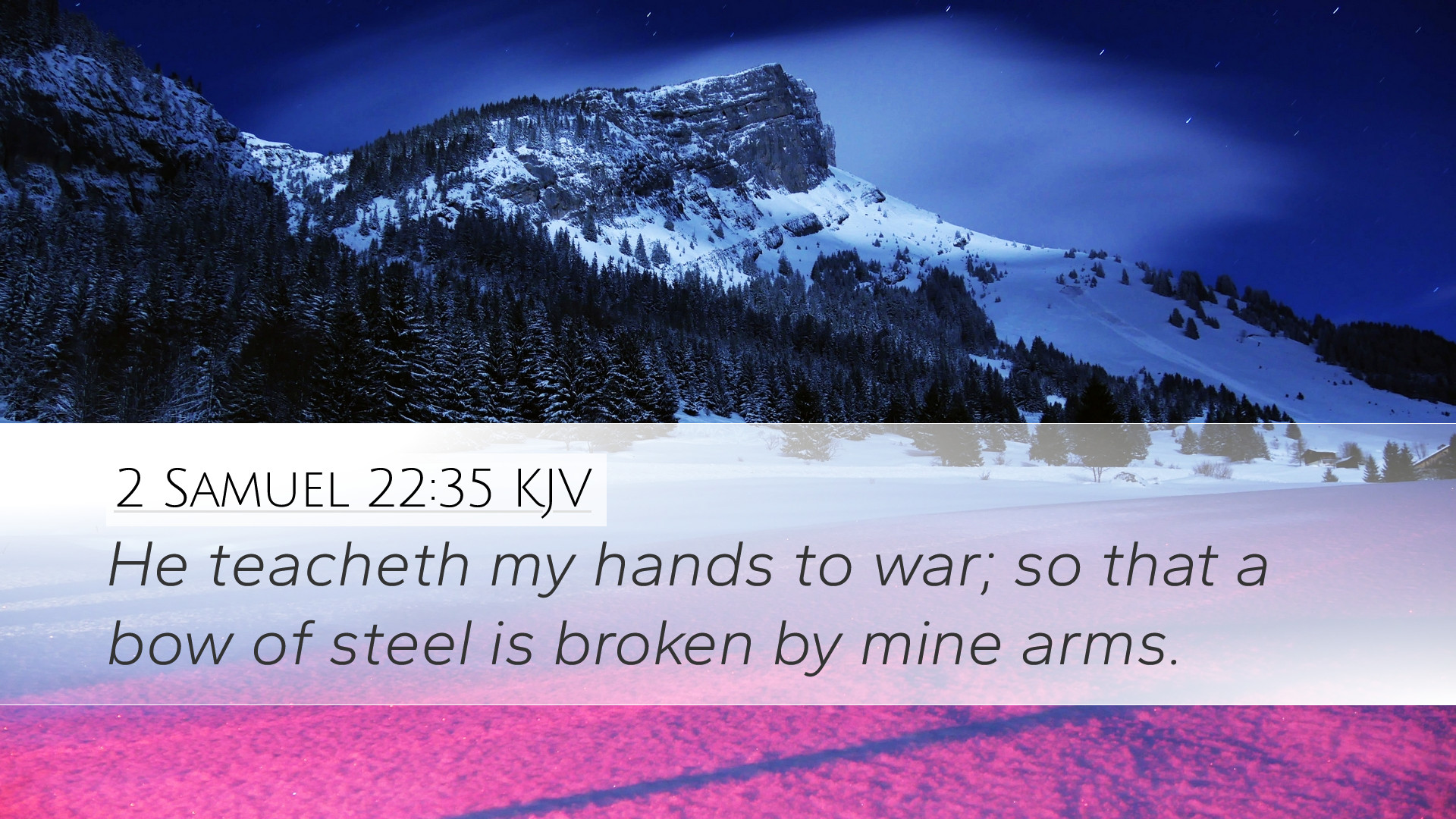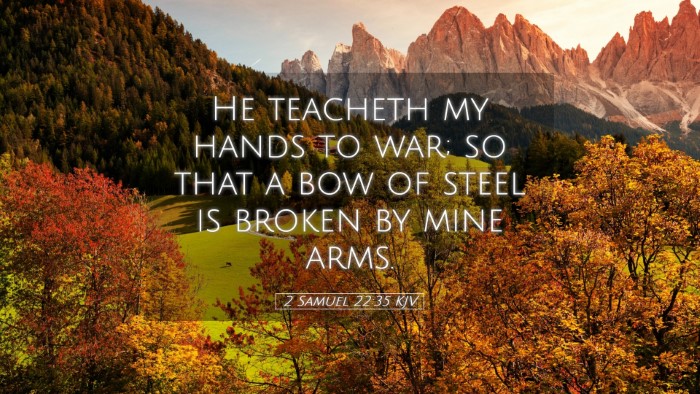Commentary on 2 Samuel 22:35
Verse: "He teaches my hands to wage war, so that my arms can bend a bow of bronze." (2 Samuel 22:35)
Introduction
This verse is both a declaration of God’s providence and a metaphor illustrating divine empowerment. In the broader context of 2 Samuel 22, David expresses his gratitude for God’s deliverance and strength. Commentaries by Matthew Henry, Albert Barnes, and Adam Clarke provide valuable insights into the theological, historical, and practical implications of this text.
Theological Implications
This verse reflects a central theme in Scripture: the dependency of God’s people on divine strength for spiritual and physical warfare.
- Divine Instruction: David begins by acknowledging that it is the Lord who teaches him to engage in warfare. This indicates the need for divine guidance in our battles, whether they are spiritual or literal.
- Empowerment for Battle: The phrase "my arms can bend a bow of bronze" signifies not only physical strength but also resilience and fortitude. Clarke emphasizes that bronze bows were exceptionally powerful, necessary for defeating formidable opponents.
Historical Context
In the narrative of 2 Samuel, David recounts the times of his suffering and challenges. Barnes notes that this passage serves as a retrospect of David's life and reign, where God’s hand was evident amidst trials.
- Military Challenges: David faced numerous foes throughout his time as king. This verse reflects not only the physical battles he encountered but also the spiritual battles he won through reliance on God.
- David's Leadership: As a leader of Israel, David’s victories were instrumental in securing the nation’s sovereignty. His reliance on God's teaching for warfare is a model for leaders today.
Practical Applications
The life lessons derived from this verse are significant for pastors, theologians, and believers today.
- Preparation for Warfare: Just as David was taught to fight, Christians must seek God’s guidance and training for their own spiritual battles against sin and temptation. The act of prayer and studying Scripture can be seen as training fields.
- Resilience in Struggles: The empowerment depicted through the metaphor of bending a bronze bow suggests that believers will encounter difficulties, but with God’s strength, they can endure and triumph.
- Recognition of God’s Role: It's important to acknowledge that all strength originates from God. David's reflection prompts Christians to give thanks and praise for the ability to face life’s challenges.
Conclusion
2 Samuel 22:35 encapsulates the essence of reliance on divine providence amidst trials. The verse serves not only as a historical account but as a relevant truth that encourages believers to recognize their need for God’s instruction and strength in their battles. Through the insights of Matthew Henry, Albert Barnes, and Adam Clarke, we understand this scripture as a powerful reminder of God's faithfulness and the call to prepare ourselves through His teaching.


